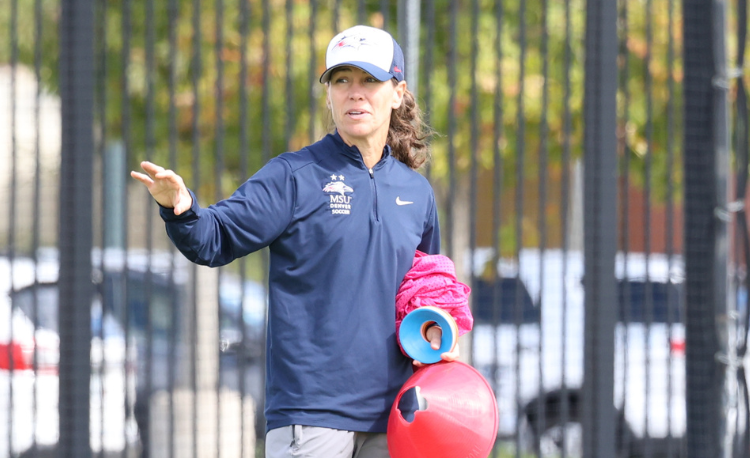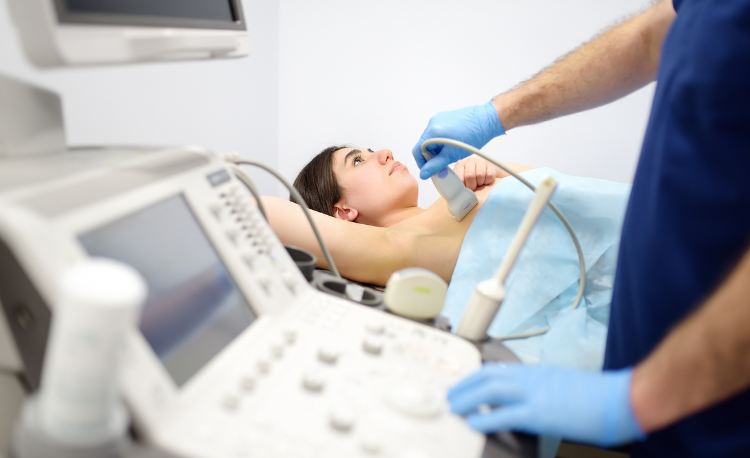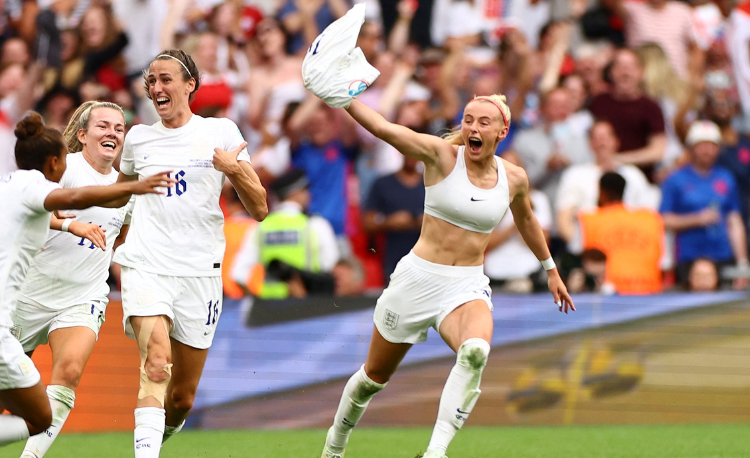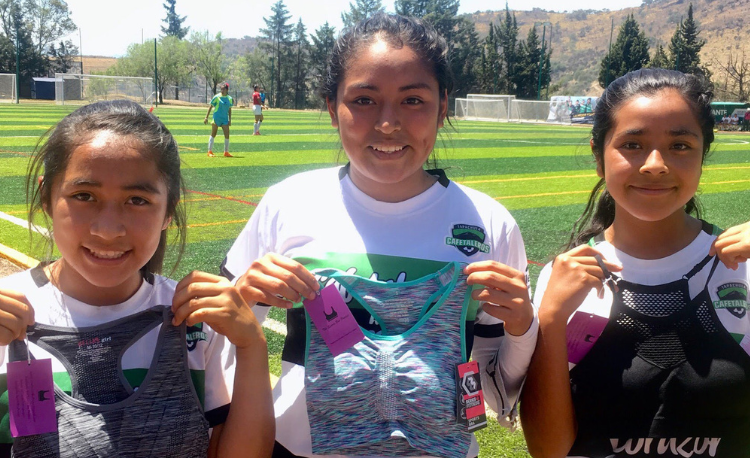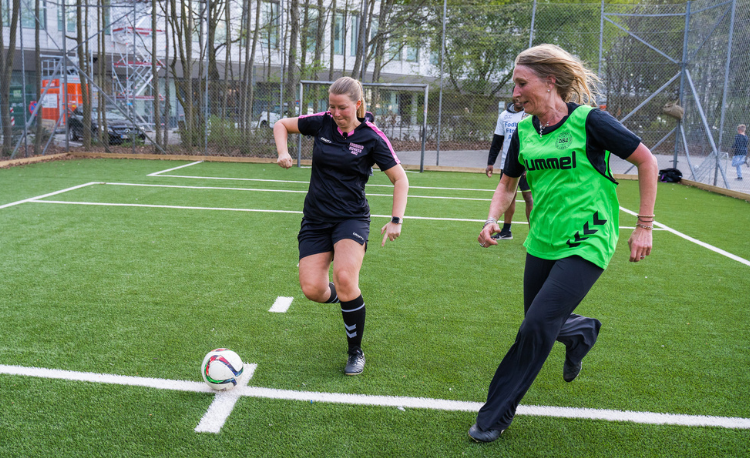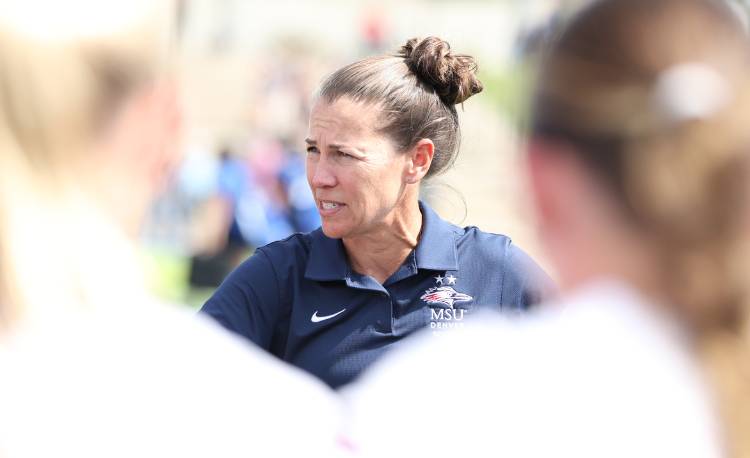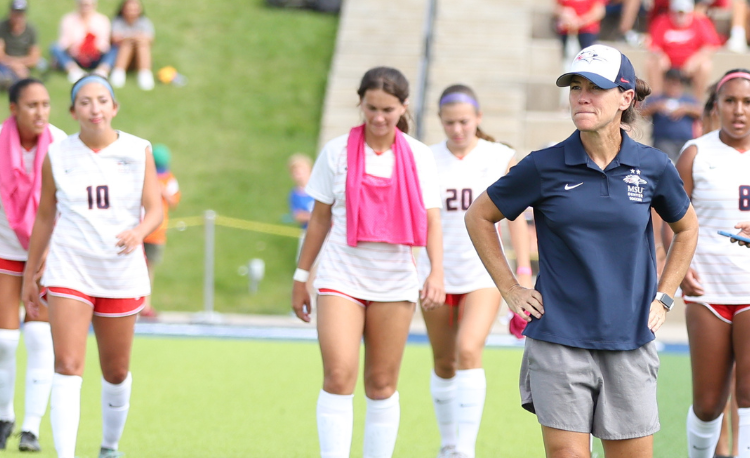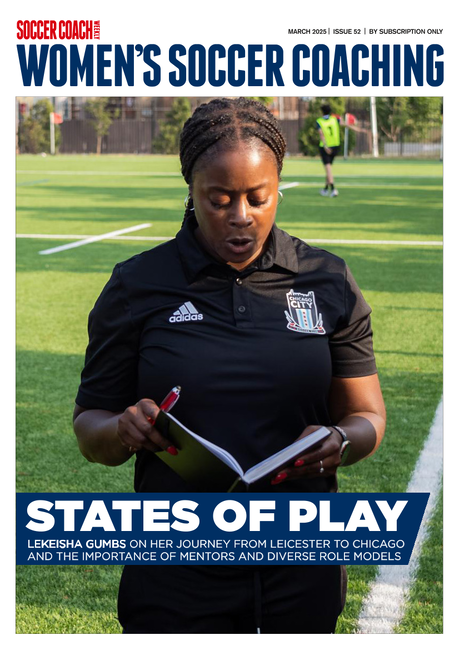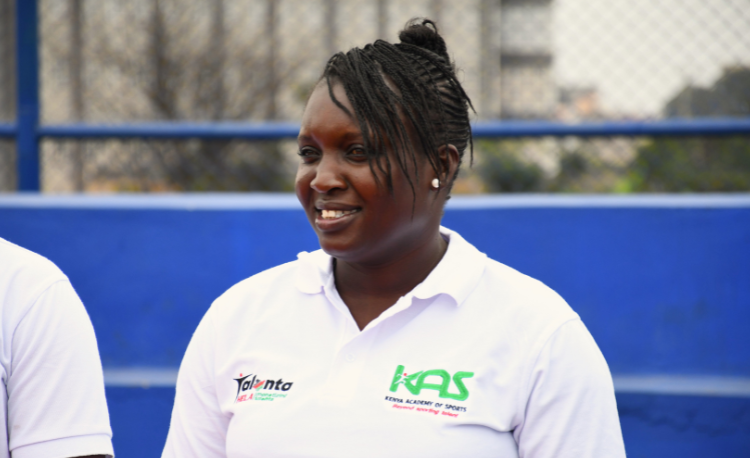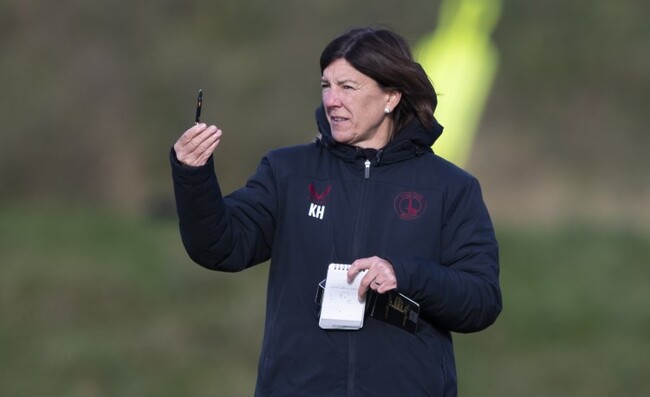You are viewing
2 of your 3 free articles
Kat Mertz's cancer story
In April, MSU Denver head coach Kat Mertz was diagnosed with breast cancer, and, in June, opted to undergo a double mastectomy, aged 48. She speaks to Carrie Dunn and stresses the importance of early detection.
“One in six women [in their 40s] will be affected by breast cancer. If you’re coaching a college team, with 27 to 30 young women, I think it’s important to talk about early detection.”
Kat Mertz is speaking from personal experience.
In April, the MSU Denver head coach was diagnosed with stage two lobular breast cancer. It came a year after her sister’s diagnosis, and followed their mother’s illness when she was in her early 50s.
Kat knew she was in a high-risk category for the disease, with immediate family members also having it, plus her breast tissue was assessed as being “dense”. It meant a closer eye was kept on her, in addition to an annual mammogram [breast scan].
“I was recommended to get a breast MRI once a year,” she explains.
“In October 2023, I had my first one and there was an abnormality. They saw a lump there, and did a biopsy.
“It was benign, so it was not cancerous, but they wanted to do a follow-up with that six months from then.
“Fast forward to February 2024. I got a mammogram and it came back normal. Everything looked fine, for dense breast tissue. And then, in March, I noticed a lump in my breasts.”
Because Kat was in a high-risk category, she was lucky that she had a regular MRI scan, because that was what picked up the cancer.
It is a relatively unusual type of breast cancer; most breast cancers are ductile, and form in the tube that carries the milk for breastfeeding. Kat’s was lobular, and grows differently.
“Lobular breast cancer spreads like ice, and you can’t see it on a mammogram.
“Thankfully, or unthankfully, I was in a high-risk category, so I was able to do the breast MRI, and that’s where they were able to spot the lobular breast cancer.”
Making treatment decisions
It was picked up relatively early, leaving Kat and her medical team with some choices about the line of treatment to pursue.
“Everyone says, ‘Oh, I would just cut my breasts off and move forward,’. When you’re in that situation, and you’re making that decision for your body, it was overwhelming,” she said.
“My wife and I have two young kids. I have a son, who’s seven, and a daughter, who’s five. We said, from the beginning, ‘I’m playing the long game’.
“I wanted to make sure that I looked at not only the five-year survival rate, but the 10-year survival rate, and what is after the 10-year survival rate.
“I wanted the most aggressive treatment that I could find. We decided the double mastectomy was the most aggressive treatment, and it would make sure that we were able to remove the tumour.
“The process was overwhelming, in the sense of: ‘What does it even mean? What does ‘expanders’ mean? What does ‘construction’ mean? What does that look like? Do I have to do surgery again?’. It took me a little bit [of time] mentally to come to terms with that.”
Kat discussed it all with a friend, who had been through similar surgery, and learned more about what the recovery process would be, and how it would impact her family.
She had the operation during the summer, so she did not miss any time coaching, only some recruitment, and was able to stay at home to rest.
After the surgery, the medical team told her that they had found another small tumour in the other breast.
“They wouldn’t have found it if I’d only done a single mastectomy,” Kat said.
“The odds of having cancer in both breasts are really slim, just 7%, so thankfully I was aggressive with that decision.”
The recovery process was something Kat found hard; not least, being unable to do things she would have usually taken on, particularly at work, where she found herself having to delegate responsibilities to her staff.
Speaking to players
She told her players all about it once she had taken the decision to have surgery.
“Some of our players’ moms, grandmothers and other family members have been affected by breast cancer, or cancer in general.
“This year, we’ve had a player on our team whose mother passed away from a recurrence of breast cancer.
“It’s a topic that has really brought our team closer in its support of one another, so it was important for me to share it with my players.
“It was important for me to share that I’m going to need their help through this process, and they’ve been amazing.”
Related Files
The importance of support
Understandably, Kat gets emotional when talking about the support she has had from her players and staff, as well as the wider athletic department.
She is also grateful to her close friends, who are former soccer players and current coaches – and, of course, her immediate family.
“My wife has been a superwoman,” Kat said. “[With] the recovery process, you don’t really know what you’re going to get yourself into.
“They say you can’t lift your arms above your head, and that’s really hard for my kids, who like to give me hugs. I’m always lifting them up, and it was really hard to not give them a big bear hug.
“I relied on my wife to give me the medication and the pills and everything I needed.”
Following the mastectomy, Kat now has two placeholders inserted in her chest ahead of reconstructive surgery, which was scheduled in once the medical team could confirm that she did not need radiation or chemotherapy.
She is taking medication to suppress her ovary function, and to control her oestrogen levels.
Now that the team are back in season, Kat has adjusted her coaching, continuing to delegate some duties, and not working hours as long as she may have done previously.
“I’m feeling better, which is great,” she said. “I just know that I need to make sure I give myself time to re-energise.
“I’ve changed my diet a lot, and that has been interesting on the road. I’m more plant-based, giving up processed sugar and meat.
“That has been important; to make sure that, not only am I resting, but I’m also getting enough proper fuel in my body.”
The role of coaches
Early detection of breast cancer is something about which Kat feels strongly.
“I was told, ‘You’re young, you’re active, you eat well, you don’t really fall under the [high-risk] category’. But, yet, here I am.
“So, I think it’s important that us women advocate for ourselves. If something doesn’t feel right, or doesn’t seem right, then we need to make sure we are following up with as much research and screening as possible.”
Kat acknowledges that can be difficult in countries where one has to pay for healthcare or insurance, such as the USA.
But she emphasises that it makes it even more important for individuals to know their bodies, understand their health, and be able to check for changes.
She thinks coaches are in a great position to start these conversations.
“[We need to] make sure we’re stressing – and I know most teams do – [about] having a healthy lifestyle after college and after playing soccer, continuing it as we move into our 20s and 30s and whole adulthood,” she suggests.
“Our young women, these college students, they’re very knowledgeable. They’re on social media, they’re very aware
“It’s important we share that information and we talk about it – like, what does a breast exam even look like?
“Whether you’re a male or female [coach], if you’ve done the groundwork to create a safe space for your athletes, they’ll be able to talk about it freely.
“If you’re uncomfortable about talking about it, bring someone in to help. Bring your athletic trainer, an outside resource, contact the doctor. Find survivors that can come in and talk a little bit about their journey and about what that looks like.”
Kat was diagnosed at the age of 48, which is relatively young, but it is not out of the ordinary – and women can certainly go through a breast cancer diagnosis even younger.
“It’s something that we need to be able to be comfortable talking about,” she says, “like [we do with] mental health, menopause.
“It’s part of life. It’s really important. The more education, the more information, we can provide to our student athletes, the better, as they move forward to the next chapter in their lives.”
‘i want to make sure we’re not just doing a pink game to do a pink thing’ – kat on breast cancer awareness month
We spoke to Kat ahead of Breast Cancer Awareness Month, which is each October.
During this time, her school, like many others, plays host to a breast cancer awareness game, extending it more widely to recognise all types of cancer that players and their families may have been affected by.
She thinks it is a great opportunity, and wants to ensure that it is not something that people pay lip service to, but something that can genuinely effect change and progress.
“It’s important that we have the conversation,” she says.
“The one thing I want to make sure is that we’re not just doing a pink game to do a pink thing. What does it mean? Why are we doing this game? What are we talking about?
“I think it’s really important to honour those who have battled and survived breast cancer, or whatever cancer they have gone through, and then also honour those who, unfortunately, have lost their lives to cancer.
“[We need to find] ways to make sure that it’s not just about wearing the pink shirt.”
Why early detection is so important
According to the National Breast Cancer Foundation, more than 360,000 people in the US will be diagnosed with breast cancer in 2024 alone.
As Kat says, early detection is crucial – if it is caught in its earliest, localised stages, the five-year survival rate is 99%.
Around 15% of women diagnosed with breast cancer have a family history of it, like Kat.
She was 48 years old when she was diagnosed – one in six women will be diagnosed with breast cancer between the age of 40 and 50.
Newsletter Sign Up
Newsletter Sign Up
Discover the simple way to become a more effective, more successful soccer coach
In a recent survey 89% of subscribers said Women's Soccer Coaching makes them more confident, 91% said Women's Soccer Coaching makes them a more effective coach and 93% said Women's Soccer Coaching makes them more inspired.
*includes 3 coaching manuals
Get Inspired
All the latest techniques and approaches
Women's Soccer Coaching offers proven and easy to use soccer drills, coaching sessions, practice plans, small-sided games, warm-ups, training tips and advice.
We've been at the cutting edge of soccer coaching since we launched Soccer Coach Weekly in 2007, creating resources for the grassroots youth coach, following best practice from around the world and insights from the professional game.
